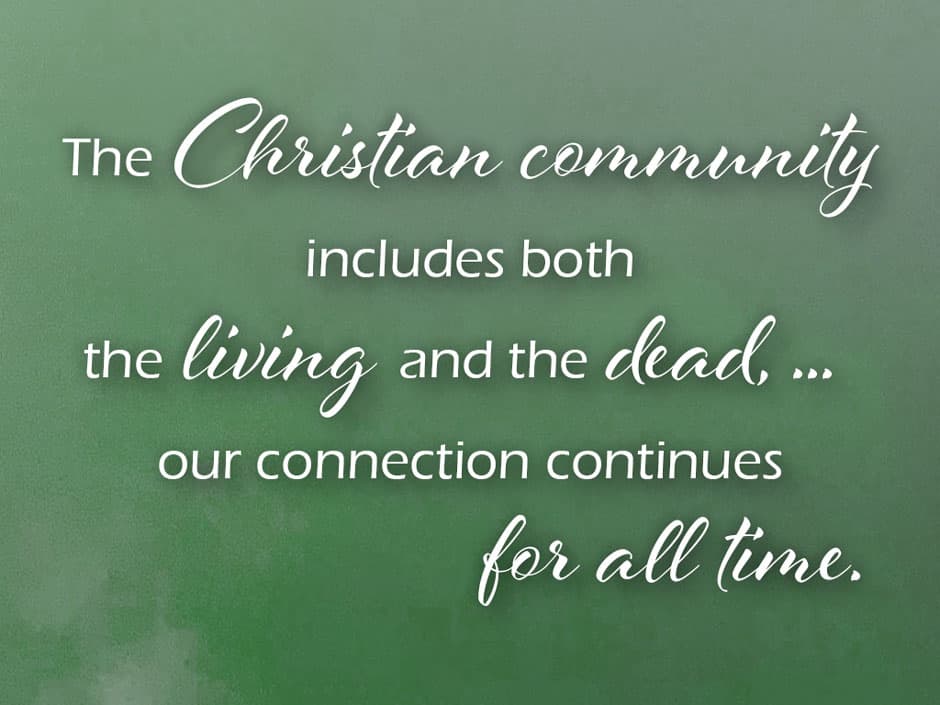Honoring a deceased pastor can be done through a variety of channels: newsletters, emails, social media posts, websites and online church directories. Such messages play an important role in the faith life of a congregation because a core Christian conviction is that we believe in “the communion of saints.” This means that the Christian community includes both the living and the dead, and that our connection continues for all time.
A post should include a photo of the deceased, and perhaps some shots with family members or parishioners. Quality candid shots are always better than studio portraits since they do a better job of capturing the pastor in action. Messages placed under or around the pictures should emphasize:
- The pastor’s humanity. Did you know that the title “parson,” referring to a member of the clergy, comes from the Latin word persona, which means “person”? A parson is a person! We often forget this when we look to our pastors to perform professional functions: baptisms, weddings, counseling sessions, hospital visits, funerals. But when you honor a deceased pastor, make note of their distinctive human qualities, such as loyalty to a perennially bad baseball team, a quirky sense of humor, or an inability to keep their office organized. While lifting up such qualities might sound like criticism, the reality is that human connections are made at the point of vulnerability, not strength.
- The pastor’s care for the congregation. A good pastor is the shepherd of the flock — in fact, the word pastor means “shepherd.” Post messages that talk about how the pastor has guided, protected, rescued and spiritually fed the members of the church. This is a good opportunity to have church members post short, personal messages about a time that the pastor came to their help in a crisis. As the old saying goes, “people don’t care how much you know until they know how much you care.”
- The pastor’s insight and inspiration. People attend a church to be uplifted and inspired, as well as to receive insight into the Bible and Christian life. Include messages about the pastor’s preaching, with reference to a particularly memorable sermon. Write an appreciation of the pastor’s teaching, with a story of a class that offered particularly valuable insights. If the pastor was particularly good with children’s messages, new members’ classes or youth fellowship programs, include memories of what they accomplished in these areas.

- The pastor’s impact on ministry and mission. A pastor who serves a church for a number of years is going to have an impact on its ministry and mission. When you honor a deceased pastor, be sure you note the ways in which he or she shaped the history of the church. Perhaps he added a contemporary service to the Sunday morning schedule. Maybe she led the church in developing small group Bible studies. One pastor might challenge the congregation to construct affordable housing for low-income neighbors. Another might guide the members into short-term mission trips to Central America or Africa, expanding their understanding of global Christianity. Every season of a church’s life is unique, and the role of a pastor in shaping the congregation’s distinctive ministry and mission should be remembered and celebrated.
Honoring a deceased pastor is an important activity for church members because these remembrances can help them to make a deeper connection with their brothers and sisters in the faith. When we look back at a pastor’s life, we see that none of us is an isolated individual. Instead, we are part of a community that is nothing less than the communion of saints.
Such remembrances can be done for other members of the community as well: deceased church members, board members, and even children and youths. No matter when a person has died, in old age or at a tragically young age, their lives are worthy of honor. Our tributes are enriched when we emphasize their humanity, their care for others, their insights, and their impact on the life of the church.

